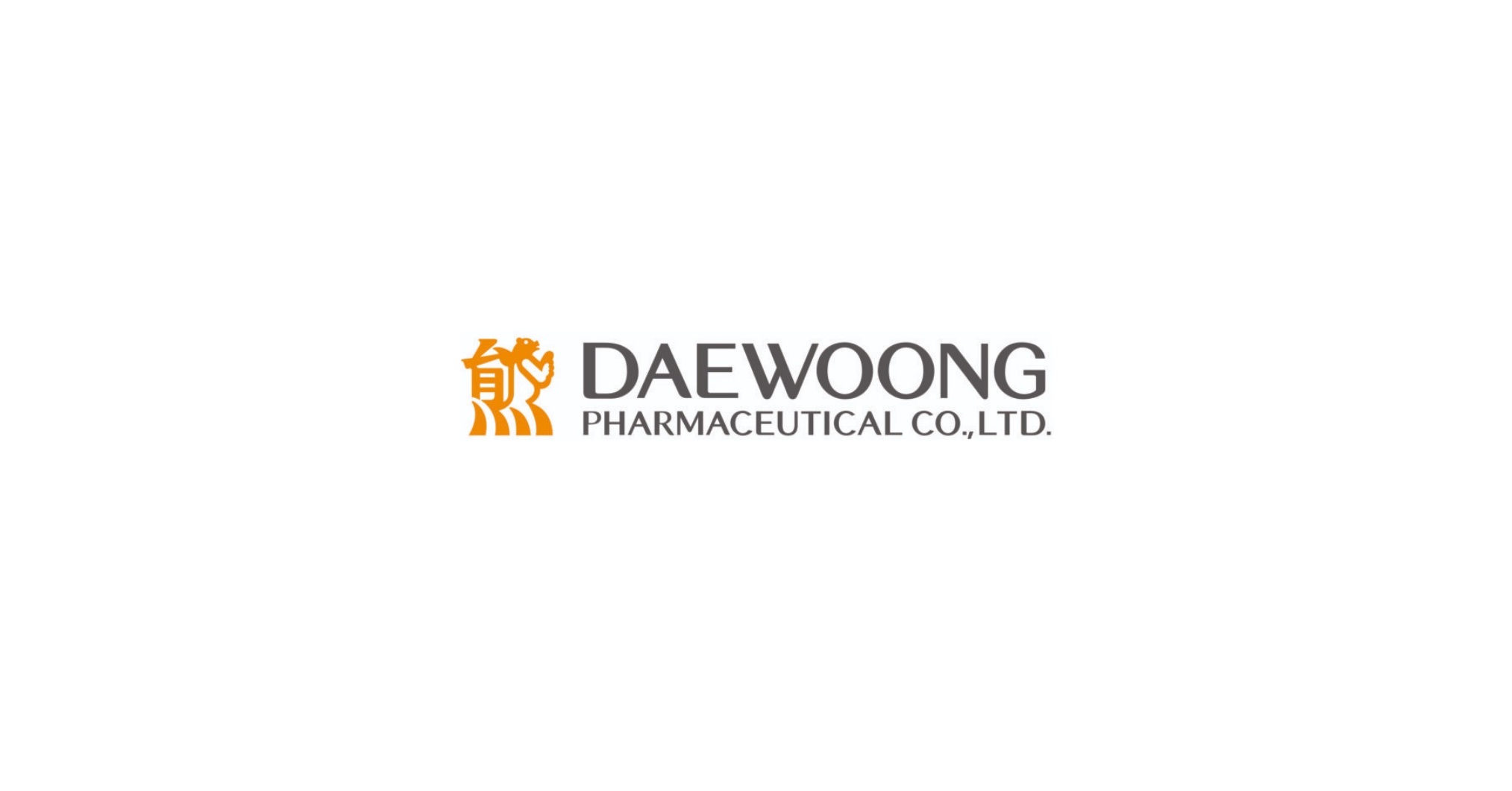- Elucidated molecular mechanism behind safety and efficacy of Bersiporocin
- Bersiporocin is currently in Phase II clinical trial for Idiopathic Pulmonary Fibrosis
SEOUL, South Korea, May 25, 2023 /PRNewswire/ — Daewoong Pharmaceutical (CEO Lee Chang-jae and Jeon Sengho) announced on the 25th that the molecular mechanism behind safety and efficacy of Bersiporocin as an antifibrotic for idiopathic pulmonary fibrosis was published in EMBO Molecular Medicine on the 21st. The title of the publication is ‘Control of Fibrosis via Asymmetric Inhibition of Prolyl-tRNA Synthetase’, and the study was in collaboration with research teams of Prof. Sunghoon Kim from Yonsei University and Prof. Kwang Yeon Hwang from Korea University.
EMBO Molecular Medicine is a SCIE (Science Citation Index Expanded) journal. EMBO is a world-renowned journal with an impact factor 14.005, has a ranking of top 5%. The journal has an international reputation for quality and originality.
Bersiporocin inhibits catalytic activity of PARS1(Prolyl-tRNA Synthetase1 or PRS) which is involved in collagen synthesis. There have been studies to inhibit PARS1 catalytic activity as an antifibrotic, yet the challenge was modulating the potency of PARS1 enzymatic inhibition as it is a critical enzyme for protein production. Daewoong has been trying to overcome the hurdle by inhibiting PARS1 just enough to bring therapeutic benefits without compromising safety. Through this publication, it has been shown that Bersiporocin asymmetrically binds to a pair of PARS1 enzymes preventing from excessive inhibition of catalytic activity, thereby eliminates safety concerns while exerting its therapeutic benefits.
PARS1 exists as a homodimer and the catalytic activity of PARS1 is directly involved with collagen synthesis and other pro-fibrotic markers. Bersiporocin can strongly bind to only one of the PARS1 homodimer, which can lead to inhibition of enzymatic activity and subsequent collagen production. Upon Bersiporocin binding, its tertiary structure of homodimer becomes altered, preventing Bersiporocin binding to the other side of homodimer. This allows PARS1 to be able to maintain viable function while its enzymatic activity is reduced. Therefore, Bersiporocin can bring antifibrotic effect through reduced enzymatic activity while still maintaining its critical function in homeostasis.
Prof. Sunghoon Kim (Yonsei University, School of Pharmacy, School of Medicine), the corresponding author of the publication, commented that “investigating novel target, novel mechanism is crucial in precision medicine and global drug discovery. This study sets an important milestone that essential enzymes like PARS1 can be targeted for drug discovery”.
Joon Seok Park, Chief of Drug Discovery Center, commented that “this study will support the unique mode of action behind Bersiporocin as a first-in-class antifibrotic, and encourage the ongoing IPF Phase II clinical studies. We believe Bersiporocin will become the next therapeutic option to patients who are still suffering for this devastating disease.”
Bersiporocin has been granted with FDA Orphan Drug Designation as well as Fast Track Designation for IPF. Daewoong’s Bersiporocin program has been selected as a national drug development project and has received funding support for Phase II clinical trial by Korea Drug Development Fund (KDDF, CEO: Muk, Hyunsang). All of these milestones represent the great potential of Bersiporocin as the next, innovative therapeutic agent for fibrosis.
About Idiopathic pulmonary fibrosis
Idiopathic pulmonary fibrosis is a devastating rare disease, characterized by progressive loss of lung function by excessive collagen deposition in the lung. The estimated prevalence of the disease is about 13 per 100,000 people worldwide. The 5-year survival rate of idiopathic pulmonary fibrosis is less than 40%, yet the current standard of care still has limitations in efficacy and safety. Therefore, there are tremendous unmet medical needs to develop and provide better therapeutic options to patients.
About Daewoong Pharmaceutical. Co., Ltd.
Established in 1945, Daewoong Pharmaceutical Co., Ltd. is a leading South Korean pharmaceutical company that develops, manufactures, and commercializes pharmaceuticals for both domestic and international markets. With a strong and innovative in-house R&D and advanced manufacturing facilities, Daewoong provides a total healthcare solution to customers across the globe. Continuing on their course of building a strong global healthcare company, Daewoong has broadened international operations by establishing branch offices and research centers throughout Asia and the United States. Daewoong has also expanded strategic partnerships in more than 100 countries worldwide. For further information on Daewoong Pharmaceutical, please visit our official website.
Forward-Looking Statements
This press release contains forward-looking statements that are based on the current beliefs and expectations of Daewoong Pharmaceutical’s management. These statements are subject to various risks, uncertainties, and assumptions that could cause actual results to differ materially from those anticipated in such forward-looking statements. Factors that could cause or contribute to such differences include, but are not limited to: (1) Regulatory and governmental approvals: The approval process for pharmaceutical products is subject to extensive regulations and may involve uncertainties and delays. Any failure to obtain necessary approvals or the occurrence of delays in the approval process could adversely affect Daewoong Pharmaceutical’s business and results of operations; and (2) Clinical trials: The success of Daewoong Pharmaceutical’s products depends on the results of clinical trials. The results of early clinical trials may not be indicative of the results of later-stage or larger-scale clinical trials.
SOURCE Daewoong Pharmaceutical Co., Ltd.


